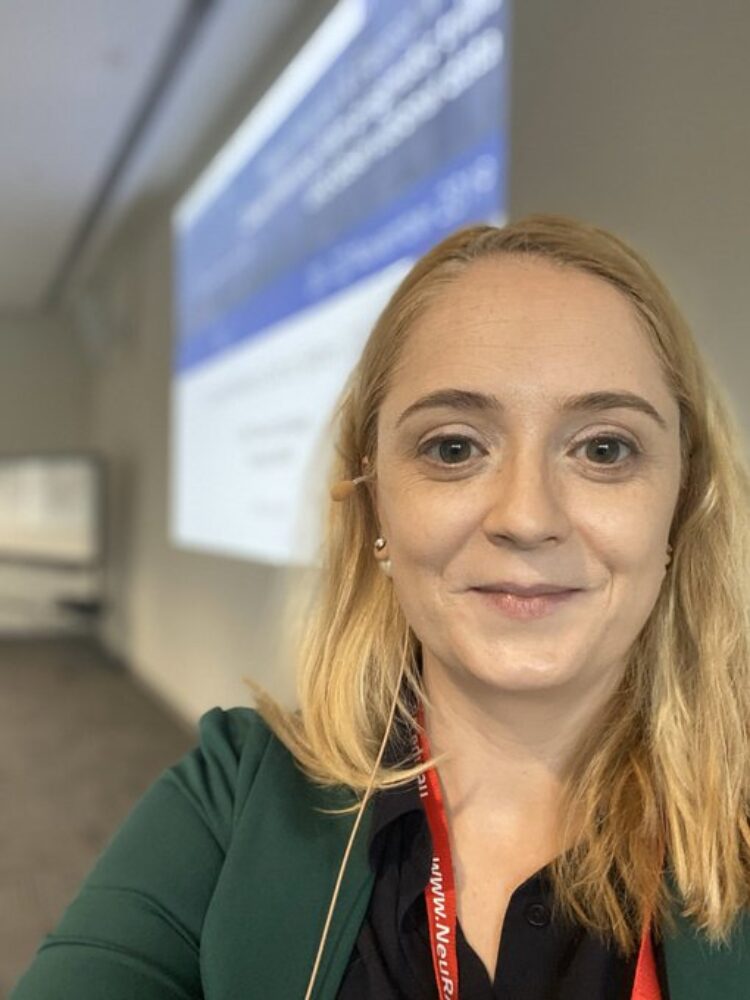Dr. Eleanor Murray
Dr. Eleanor Murray
science communication/news media and social media/COVID-10 response corps/scientific rigor/mentor/
Ellie has been a creative and effective science communicator on issues ranging from complex epidemiologic methods to navigating life in the COVID-19 pandemic. At BU, she organized the COVID-19 Response Corps. She’s committed to health equity, thoughtful, and incredibly good at considering critical feedback.
No one has been a more consistent, scientifically rigorous and accessible, moral, critical, courageous, reasoned, principled, and–when necessary–gladiatorial communicator of epidemiology and public health during this pandemic than Dr. Murray. Hundreds of thousands of people benefited from her work on twitter and in the press.
Dr. Murray’s research focuses on causal inference methodology for improving evidence-based decision-making by patients, clinicians, and policy makers, particularly in the context of infectious disease. During the COVID-19 pandemic, Dr. Murray has gone to great lengths to help in the COVID-19 response. She has shown a strong commitment to high-quality and clear communication of public health topics to the general public as showcased through engagements with the media and serving as co-director of the Epidemiology COVID-19 Response Corps at Boston University.
-Dr. Murray has been interviewed by multiple news outlets including national news, including The New York Times, NPR, The Atlantic, Washington Post, CNN, and Forbes. She has been cited in the news on COVID-19 related topics more than 100 times (https://profiles.bu.edu/Eleanor.Murray).
– Dr. Murray is widely known as an expert epidemiologist (@EpiEllie on Twitter).
– Dr. Murray has co-created animations about proper hygiene, social distancing and mask wearing for Instagram and for Boston Medical Center. These were clear and fun, and engaging for both public health audiences and the general public (https://www.bu.edu/sph/news/articles/2020/stick-figures-vs-covid-19/).
-Dr. Murray is a Co-Director of the Epidemiology COVID-19 Reponse Corps at Boston University (BU): https://sites.bu.edu/covid-corps/. This group is designed to bring together students, faculty, and other BU community members to address important epidemiologic issues related to the COVID-19 pandemic, including research, communication, policy, and best practices. This group has projects focused on epidemiology research, safe opening, science communications, research best practices, policy, mental health, BIPOC community response, and disabilities and chronic conditions. The group consists of Co-Directors, a 6-person executive committee, 11 mentors, and 67 members.
– To help with funding the COVID-19 Response Corps at BU, she has designed and sold epidemiology-related merchandise, including t-shirts, masks, tote bags, and mugs.
– She has also published a number of peer-reviewed articles on COVID-19 (Refs 1–5), including ones focused on science communication (Ref 6) and the need for multidisciplinary collaborations (Ref 7).
In summary, Dr. Murray has not only responded as an exemplary public health advocate during the most significant public health challenge since 1918 through her clear communication practices with the public via Twitter, news outlets, animations and merchandise, but also she has maintained her scientific vigor with peer-reviewed article submissions. Importantly, her key role in the COVID-19 Response Corps at BU is establishing a scientific collaboration that will endure well beyond the pandemic and training the public health force that will respond to future epidemics.
References:
1. D’Agostino McGowan, L., Grantz, K. H. & Murray, E. Quantifying Uncertainty in Infectious Disease Mechanistic Models. Am. J. Epidemiol. (2021) doi:10.1093/aje/kwab013.
2. Fox, M. P. et al. Concerns About the Special Article on Hydroxychloroquine and Azithromycin in High Risk Outpatients with COVID-19 by Dr. Harvey Risch. Am. J. Epidemiol. (2020) doi:10.1093/aje/kwaa189.
3. Kouser, H. N., Barnard-Mayers, R. & Murray, E. Complex systems models for causal inference in social epidemiology. J. Epidemiol. Community Health (2020) doi:10.1136/jech-2019-213052.
4. Rashid, A. et al. A clinician’s primer on epidemiology for COVID-19. Med N. Y. N (2021) doi:10.1016/j.medj.2021.02.007.
5. Tennant, P. W. G. & Murray, E. J. The Quest for Timely Insights into COVID-19 Should not Come at the Cost of Scientific Rigor. Epidemiol. Camb. Mass 32, e2 (2021).
6. Goldstein, C. M., Murray, E. J., Beard, J., Schnoes, A. M. & Wang, M. L. Science Communication in the Age of Misinformation. Ann. Behav. Med. Publ. Soc. Behav. Med. 54, 985–990 (2020).
7. Murray, E. J. Epidemiology’s Time of Need: COVID-19 Calls for Epidemic-Related Economics. J. Econ. Perspect. 34, 105–120 (2020).

